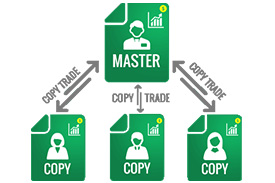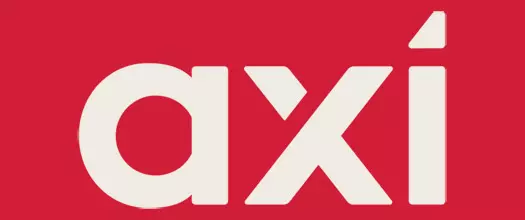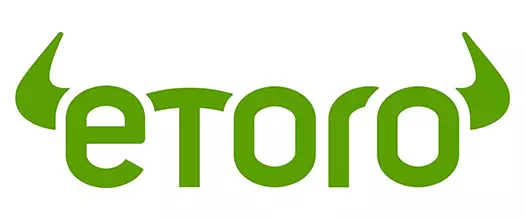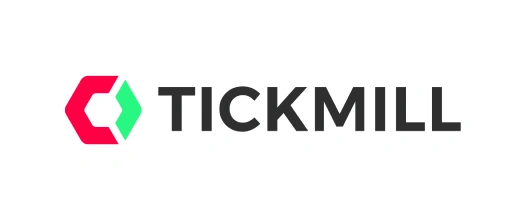- Jump to:
- Main features of the best Social Trading Forex brokers
- What is Social Trading
- Copy Trading
- Mirror Trading
- Main Benefits
- Why People Fail
- Lack of Portfolio
- Risk Management
- Timing and Slippage
- High Expectations
- Lack of Research
- Best Social Trading Brokers
- eToro
- AvaTrade
- ZuluTrade
Trading with financial instruments like currency pairs, stocks, and commodities requires a good deal of experience and a sound understanding of how the markets work. To be successful, traders must stay up to speed with the latest news reports and trends in the financial industry.
 Fusion Markets74-89% of retail's CFD accounts lose money
Fusion Markets74-89% of retail's CFD accounts lose money FP Markets73.85% of retail investor accounts lose money
FP Markets73.85% of retail investor accounts lose money Pepperstone75.5% of retail investor accounts lose money
Pepperstone75.5% of retail investor accounts lose money AxiThe vast majority of retail client accounts lose money
AxiThe vast majority of retail client accounts lose money eToro51% of retail investor accounts lose money
eToro51% of retail investor accounts lose money Tickmill70% of retail investor accounts lose money
Tickmill70% of retail investor accounts lose money
Below you can find a comparison table of forex brokers that support social trading features including copy trading and following successful traders. We rank them based on several factors including: regulation, spreads and commissions, Trustpilot rating, trading instruments, trading platforms, deposit and withdrawal methods.
Our team has thoroughly evaluated all brokers listed below using TradingPedia’s exclusive methodology.
Main features of the best Social Trading Forex brokers
- Brand
- Trading platforms
- Minimum deposit
- Regulations
- Trading instruments
- Spreads
- Leverage for Forex CFDs
- Leverage for Crypto CFDs
- Leverage for Indices CFDs
- Deposit methods
- Withdrawal Methods
- Commission per Lot
- Contact details
However, not everyone can afford to invest the necessary time and effort into researching markets, reading charts, and performing technical or fundamental analysis. Many inexperienced traders are impatient and skip on these steps. They ultimately end up losing their hard-earned money due to lack of preparation and incompetence.
Social trading could be particularly useful for people who want to overcome these challenges. This is an interesting crowd-based concept which introduces a new and innovative way of analyzing financial data. It shortens the learning curve since it enables beginners to interact with other traders, watch their trades, comment on them, and copy their positions.
Essentially, social trading allows beginners to learn from the best. It also enables them to find new types of strategies to use in the future. The popularity of social trading networks keeps increasing as people see more and more potential for profits in them. This is the best start for novice traders, so if you are one, take a look at this article to learn the ins and outs of social trading.
What is Social Trading and How Does It Work
 The concept of social trading is more or less similar to that of social networks like Facebook but instead of sharing pictures of their pets and meals, community members share trading ideas with other market participants. The network gives traders the chance to interact with each other, see the results of successful investors of long-standing, and discuss trends and price movements in real-time.
The concept of social trading is more or less similar to that of social networks like Facebook but instead of sharing pictures of their pets and meals, community members share trading ideas with other market participants. The network gives traders the chance to interact with each other, see the results of successful investors of long-standing, and discuss trends and price movements in real-time.
Participants in the social trading network can make shrewd trading decisions based on shared information rather than relying on fundamental and technical analysis. Of course, you can use the information to confirm other forms of analysis while staying in full control of your trades.
Social trading platforms also enable less skilled or knowledgeable traders to follow experienced professionals and copy their trades or strategies into their own portfolios. Needless to say, this bolsters novices’ chances of success and saves them money they would otherwise spend on hiring professional wealth managers. You have everything you need at your fingertips, from detailed market analysis to the experts’ take-profit and stop-loss parameters.
Of course, it is essential for you to follow and copy successful investors who see great results consistently. All good social trading networks ensure high levels of transparency. You have full access to the overall performance of professional traders and the histories of their past results.
You are probably wondering what incentive do expert traders have to let others follow and mimic their decisions? The answer is simple. Seasoned investors get the chance to share their expertise with less competent traders and generate additional earnings from their followers.
They collect fees for each follower, so the more people follow them, the better. Each social trading platform has a leaderboard where one can see its top traders. The latter are classified based on their success rates and number of followers.
The entire process of social trading is beyond simple. First you need to find a reliable social trading platform and set up an account there. Some brokers that offer this service provide customers with a choice from demo and live accounts.
Once you have registered successfully, you only need to search the network’s database to find successful traders to follow and copy. Be careful who you follow, though. Compare the historical performance and the risk levels of the listed top traders before you make a pick.
To make an informed investment decision, you should be looking at trading histories that span several years. We recommend you to choose investors with low-risk scores and consistent overall profitability over the years.
Copy Trading
 There are two forms of social trading, the first one being copy trading where you open and close exactly the same single positions of a trader you follow. In essence, you can emulate the decisions of fellow traders in real-time, either manually or automatically.
There are two forms of social trading, the first one being copy trading where you open and close exactly the same single positions of a trader you follow. In essence, you can emulate the decisions of fellow traders in real-time, either manually or automatically.
You can copy the positions of one or more traders but do not overdo it. Emulating the decisions of way too many people can still result in significant losses, especially if you follow traders haphazardly and do not invest enough time in research.
This form of social trading is considered more suitable for novice or small-scale traders. You can copy the individual trades of the people you follow or their entire trading strategy. It is also possible to allocate a specific percentage of your balance to each person you emulate.
Some copy trading platforms like eToro enable users to filter traders by their risk scores, profits, and country of origin. When you find a person you want to copy, you should simply open their profile to review their statistics, biography, and trading strategies. If you like what you see, all you have to do is hit the “copy” button and specify what amount of your overall account equity you want to allocate to this person.
It should be noted the execution of trades is proportionate. Assume, for example, you allocate $2,000 to someone whose account equity is $20,000. This person then decides to open a long position for the EUR/USD pair to the amount of $2,000. When they do so, the software will copy a $200 long position into your account for this pair.
As you can see, this form of social trading enables you to mimic not only individual positions but the investment strategies of the people you follow. Note that the maximum percentage of your balance you can allocate to a single person is often limited, which facilitate spreading the risk of your investments.
Mirror Trading
 Mirror trading is a bit more complex and is, therefore, considered the better option for bigger-scale investors. Those who choose this style of social trading typically must commit with larger capital than copy traders. Respectively, they should be prepared to see more substantial swings in the equity of their accounts.
Mirror trading is a bit more complex and is, therefore, considered the better option for bigger-scale investors. Those who choose this style of social trading typically must commit with larger capital than copy traders. Respectively, they should be prepared to see more substantial swings in the equity of their accounts.
As a result of these peculiarities, many less-experienced traders get easily intimidated by mirror trading, especially if they are accustomed to working with smaller volumes and have limited capital at their disposal.
Additional issues might result from the sheer amount of trading activity involved in mirror trading. One must constantly keep track of their balance to ensure there is sufficient equity to cover all the trades. This is so because you copy other people’s entire investment strategies rather than copying individual trades.
Mirror trading first gained traction in the 2000s and was particularly popular among institutional customers. Later it became available to retail account holders as well. This is how it works. A trader chooses a broker’s trading platform that supports the service and goes through the histories of different strategies to see how they have performed in the past. Said strategies are devised by experienced investors with a deep understanding of how the Forex markets work.
The person then picks one of the available algorithmic strategies depending on their personal goals, level of risk tolerance, preferred currencies, and equity. For instance, you should choose a strategy with a low maximum drawdown if you are averse to high levels of risk.
Brokers who offer this service closely examine the results of the developers to sift out the losing strategies from the winning ones. Approved strategies must cover specific criteria in terms of maximum drawdown and profitability. Generally speaking, only strategies that perform well over the long run (for at least twelve months) are approved for mirror trading.
The trades of a strategy developer are emulated in the accounts of the mirror traders who follow them. The entire process is automated, with the brokerage’s software replicating trades around the clock. One of the main benefits of this approach is that it eliminates emotional trading.
Main Benefits of Social Trading
The 4 Main Benefits of Social Trading in a Nutshell
- Social trading has high levels of transparency
- It reduces the learning curve for beginner traders
- It saves time and allows you to trade indirectly by automatically copying the positions of others
- It gives you instant access to tons of valuable and reliable trading information
 There are many different benefits of social trading, starting with the fact it gives new investors a good head-start on the Forex markets. They have unrestricted and immediate access to accurate information that comes straight from experienced traders from around the world.
There are many different benefits of social trading, starting with the fact it gives new investors a good head-start on the Forex markets. They have unrestricted and immediate access to accurate information that comes straight from experienced traders from around the world.
Not only do you get to emulate the trades of successful professionals but you can also interact with them. Participants in the social trading network can discuss different strategies, price movement trends, and news reports. This helps build a close-knit trading community whose members exchange ideas, help improve each others’ performance, and collaborate in different ways.
All of these activities can greatly shorten the learning curve of beginners and help them gain experience and knowledge about the Forex markets. Novices can learn quickly and more effectively by interacting with well-versed investors, examining their strategies, and mimicking their trades.
It is also important to note that this format of trading ensures high levels of transparency and saves time. Some people are confident enough to trade on their own but simply cannot afford to dedicate enough time to market research, technical or fundamental analysis, and trend identification. This format enables them to remain active in the Forex market. They can trade indirectly by automatically replicating the positions of informed professionals.
It is not unheard of people allowing others to make important financial decisions on their behalf, usually via pension funds, personal brokers, and bank savings accounts. The trouble is in many cases one has no clear idea where and how their funds are being invested.
This is not the case with social trading which guarantees full transparency. All network participants whose trades and strategies are available for copying or mirroring have public profiles everyone can examine openly.
You can see their track records in full detail, including their results, portfolios, maximum drawdown, risk level, and strategies. All of this information helps you make informed decisions when choosing who to follow and copy.
Common Reasons Why People Fail at Social Trading
 One of the biggest mistakes of some social traders is believing this method completely eliminates risk and guarantees sure, consistent profits. Unfortunately, this is not how the Forex markets work.
One of the biggest mistakes of some social traders is believing this method completely eliminates risk and guarantees sure, consistent profits. Unfortunately, this is not how the Forex markets work.
Risk is inherent to trading. Everyone, no matter how competent and experienced they are, is likely to suffer losses at one point or another. Here are five of the most common reasons why some people fail at social trading.
Lack of Portfolio Diversification
 Some social traders put all their eggs in the same basket and this ultimately ends up costing them money. They are too confident in the capabilities of one or two traders. Similarly, they would copy trades only from a single market. This approach is faulty because if that market makes an unexpected adverse movement, such traders will have no other markets to invest in to recoup their losses.
Some social traders put all their eggs in the same basket and this ultimately ends up costing them money. They are too confident in the capabilities of one or two traders. Similarly, they would copy trades only from a single market. This approach is faulty because if that market makes an unexpected adverse movement, such traders will have no other markets to invest in to recoup their losses.
It is wiser to spread your equity between more trading experts and different currency pairs because this would decrease your overall risk. Reliable social trading networks offer a broad choice of professional traders you can follow and copy.
We would even recommend you to join several brokers that offer such services since different social trading platforms tend to attract different types of investors. Another trait successful traders share is investing in varied financial instruments rather than trading solely currency pairs. In their portfolios, you are likely to see instruments like stocks, indices, commodities, and even cryptocurrencies.
Inadequate Risk Management
 Inadequate risk management comes in many different forms but inevitably leads to great losses. Risk should be proportionate to the amount of capital you intend to invest in social trading. It would be unwise to copy the trades of a person who resorts to high-risk strategies if you have a limited balance at your disposal.
Inadequate risk management comes in many different forms but inevitably leads to great losses. Risk should be proportionate to the amount of capital you intend to invest in social trading. It would be unwise to copy the trades of a person who resorts to high-risk strategies if you have a limited balance at your disposal.
When you choose who to follow on social trading platforms, you should always ensure the strategies they implement correspond to your capital and individual risk tolerance. One way to identify traders who make particularly risky investments is by the swings in equity they experience. Another thing worth checking out is their maximum drawdown, which should be low.
Timing and Slippage
 Keep in mind that when you replicate the positions of successful traders, the orders are not necessarily executed at exactly the same time. This eventually can lead to slippage, which represents the difference between the trades’ expected prices and the prices at which they are executed.
Keep in mind that when you replicate the positions of successful traders, the orders are not necessarily executed at exactly the same time. This eventually can lead to slippage, which represents the difference between the trades’ expected prices and the prices at which they are executed.
While slippage is possible at any moment, it commonly occurs during times of high market volatility. It also happens when a trader tries to execute a very large order but there is no sufficient volume at the selected price to maintain the current spread.
Delays in the trades’ execution may lead to losses because prices tend to move very rapidly. Thus, when you copy a position, you might end up buying the pair at a poorer price than the person you copied. The same goes for selling pairs. It is unrealistic to always expect to generate exactly the same profits as those of the people you follow.
Unreasonably High Expectations
 Many beginners are attracted by social trading because they are quick to assume this method guarantees massive gains from small investments. This idea is further promoted by some social trading networks and brokerages. They only highlight the gains of high-ranking copied traders without mentioning about their losses.
Many beginners are attracted by social trading because they are quick to assume this method guarantees massive gains from small investments. This idea is further promoted by some social trading networks and brokerages. They only highlight the gains of high-ranking copied traders without mentioning about their losses.
And indeed, some professionals can record a huge yearly Return on Investment (ROI) that exceeds 100% or oven 500% in some cases. When incompetent beginners see these impressive gains, they set their expectations too high expecting to repeat this success through social trading.
They fail to understand that all trading activities involve some risk, which sooner or later leads to losing trades. It is important to remember that Forex trading is a marathon rather than a sprint. It takes time to record exceptional gains and results.
Lack of Research
 Some social traders are too lazy to put in the necessary time and effort into researching the people they follow and copy. However, it is of utmost importance to know exactly who you follow along with their long-term profitability and performance. Otherwise, there is a good chance you will copy the trades of someone whose success on the markets was short-lived.
Some social traders are too lazy to put in the necessary time and effort into researching the people they follow and copy. However, it is of utmost importance to know exactly who you follow along with their long-term profitability and performance. Otherwise, there is a good chance you will copy the trades of someone whose success on the markets was short-lived.
Some traders rank high on a broker’s list of experts because they utilize high-risk trading strategies, which causes them to rack up large profits over a short period. This is by no means indicative of their overall performance. Before you follow and copy someone, check their portfolio, trading history, and results over the last several years.
Best Social Trading Brokers
 As we mentioned earlier, social trading first emerged in the 2000s so it is anything but a new phenomenon. What is more, the number of brokers to offer this service has increased tremendously over the past decade, which makes choosing a reliable social trading platform all the more difficult and time-consuming. To help you out with your choice, we have picked three brokers we consider the best options for social trading.
As we mentioned earlier, social trading first emerged in the 2000s so it is anything but a new phenomenon. What is more, the number of brokers to offer this service has increased tremendously over the past decade, which makes choosing a reliable social trading platform all the more difficult and time-consuming. To help you out with your choice, we have picked three brokers we consider the best options for social trading.
eToro
 Established in 2007, eToro is considered by many to be the world’s leading platform for social trading, with millions of registering customers. The platform offers a host of cutting-edge tools for investment and analysis which can help you become a smarter trader.
Established in 2007, eToro is considered by many to be the world’s leading platform for social trading, with millions of registering customers. The platform offers a host of cutting-edge tools for investment and analysis which can help you become a smarter trader.
In 2010, eToro launched its social trading platform. It immediately attracted the attention of traders and financial industry experts alike, earning the brokerage a Finovate Europe award in the Best of Show category.
Apart from social trading, eToro customers can take advantage of useful features like detailed news feeds, video tutorials, daily market reviews, automatic trading, and free demo accounts.
eToro is a multi-asset investment platform. The value of your investments may go up or down. Your capital is at risk.
AvaTrade
 AvaTrade is considered one of the pioneers in online trading. The company began operations back in 2006 and was founded by a team of financial and web-commerce experts. It is well-known in the industry for its integrity and fair treatment of customers, efficient support service, and innovative approach. The brokerage has an enormous customer base that spans over 200,000 registered traders.
AvaTrade is considered one of the pioneers in online trading. The company began operations back in 2006 and was founded by a team of financial and web-commerce experts. It is well-known in the industry for its integrity and fair treatment of customers, efficient support service, and innovative approach. The brokerage has an enormous customer base that spans over 200,000 registered traders.
Another impressive thing about AvaTrade is that its monthly trading volumes surpass the impressive $60 million. It offers a vast range of services and features across a broad spectrum of financial instruments including currency pairs, commodities, stocks, and indices. AvaTrade provides a fully automated copy trading service and has offices in some of the world’s biggest financial hubs like Tokyo, Paris, Sydney, and Dublin.
ZuluTrade
 Launched in 2007, ZuluTrade is a reputable fintech company that hails from Greece. This is easily one of the most recognizable platforms for social trading. It ranks traders depending on their Return on Investment (ROI) and risk level, enabling followers to copy other people’s strategies according to their individual risk tolerance and investment capital.
Launched in 2007, ZuluTrade is a reputable fintech company that hails from Greece. This is easily one of the most recognizable platforms for social trading. It ranks traders depending on their Return on Investment (ROI) and risk level, enabling followers to copy other people’s strategies according to their individual risk tolerance and investment capital.
The company is licensed and regulated in multiple jurisdictions, including the United States, the European Union, and Japan. It upholds high standards of safety and privacy. ZuluTrade provides its customers with an open environment where they can share their knowledge and experience. Its platform is available in multiple languages including German, English, Russian, Chinese, French, Italian, and Swedish, among others.









